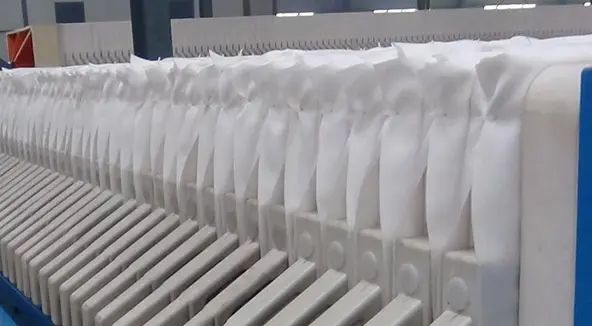In the bustling arena of industrial operations, the importance of maintaining a clean and efficient environment cannot be overstated. Enter industrial filtration equipment, a cornerstone in safeguarding the integrity of manufacturing processes, protecting equipment from contaminants, and ensuring products meet both regulatory and quality standards. This comprehensive guide explores the definition, advantages, applications, types, and purchasing considerations of industrial filtration equipment.
Table of Contents
ToggleDefinition of Industrial Filtration Equipment
Industrial filtration equipment refers to a range of devices designed to separate solids, liquids, or gases from mixtures to enhance purity and quality. This equipment plays a pivotal role in removing harmful particles and contaminants from fluids and air, thereby extending equipment life, improving product quality, and ensuring environmental compliance. From fine particle removal in pharmaceuticals to heavy-duty applications in mining, filtration systems are integral to various industrial processes. 
Advantages of Industrial Filtration Equipment
The benefits of employing industrial filtration technology are vast: Enhanced Product Quality: Filtration equipment aids in eliminating contaminants from raw materials and products, guaranteeing outputs of high quality that conform to both industry standards and consumer expectations. This is exceptionally important in industries such as pharmaceuticals, food and beverage, and electronics, where absolute purity is crucial. Extended Equipment Lifespan: By removing harmful contaminants and particulate matter, filtration systems protect critical machinery and components from premature wear and damage. This leads to fewer breakdowns, reduced maintenance costs, and extended equipment life. Improved Environmental Compliance: Industrial filtration helps facilities meet stringent environmental regulations by effectively capturing pollutants and reducing emissions. This includes controlling particulate matter, gases, and other emissions that could harm the environment. Operational Efficiency: Clean systems are more efficient. Filtration equipment ensures that heating, cooling, and mechanical systems operate at optimal efficiency by preventing clogging and maintaining clean internal environments. This leads to decreased energy use and boosts overall productivity. Workplace Safety and Health: Filtration systems play a vital role in maintaining air and water quality, which is essential for the health and safety of workers. In industries dealing with toxic substances, effective filtration reduces exposure to harmful chemicals and particulates.
Application of Industrial Filtration Equipment
The versatility of filtration technologies means they are employed across a broad spectrum of sectors: Water Treatment: Essential for both municipal and industrial water treatment plants to remove impurities and pathogens. Chemical Processing: Used to purify chemicals and protect processing equipment from sediment buildup. Pharmaceuticals: Critical for ensuring the sterility and purity of pharmaceutical products. Food and Beverage: Filters are used to ensure the clarity, purity, and taste of products are consistent and contamination-free.Oil and Gas: Filtration equipment is used to separate particles and liquids from gases and to purify oils before they are processed or sold.
Types of Industrial Filtering Equipment
Liquid Filtration Equipment
Bag Filters: Utilized primarily for removing solids from liquids, these filters employ porous bags made of materials like polypropylene or polyester. Bag filters are favored for their simplicity and effectiveness in applications ranging from chemicals to food processing. Cartridge Filters: These filters are similar to bag filters but employ a disposable or cleanable cartridge that contains filter media such as activated carbon or synthetic fibers. They are suitable for finer filtration and are used in pharmaceutical production, potable water systems, and more. Ultrafiltration Systems: These systems use membranes to separate particles and solutes from water based on molecular size. They are efficient in a variety of applications, such as treating wastewater and reclaiming valuable materials from industrial effluents.
Dust Filtration Equipment
Fabric Filters (Baghouses): These filters collect dust particles from industrial exhaust streams. Air laden with particulates passes through fabric bags that capture the dust, which can then be disposed of or recycled. Electrostatic Precipitators: By charging dust particles as they pass through an electrical field, these devices capture them on collector plates. They are widely used in power plants and heavy industries to control particulate emissions. Cyclone Separators: Employing a centrifugal force mechanism, these separators cause dust-laden air to spiral inside a cylindrical chamber, where larger particles are forced to the wall and then fall to a collection point due to gravity.
Gas Filtration Equipment
Activated Carbon Filters: These filters are used to remove gases and odors by adsorbing pollutants onto activated carbon. Common applications include industrial air purification and the treatment of exhaust gases to remove organic compounds. Scrubbers: Available in wet and dry varieties, scrubbers remove pollutants from gas streams. Wet scrubbers dissolve or capture pollutants in a liquid form, while dry scrubbers trap them in a solid medium. HEPA and ULPA Filters: High-efficiency particulate Air (HEPA) and Ultra-Low Particulate Air (ULPA) filters are utilized to eliminate airborne particles and contaminants in settings that demand exceptionally clean air, such as biomedical and electronics manufacturing environments.
Issues to Pay Attention to Before Purchasing Industrial Filtering Equipment
Investing in the right filtration system requires careful consideration: Compatibility: Ensure the filter material is compatible with the fluids or gases being processed to prevent chemical degradation and system failure. Capacity: Consider the volume of material to be filtered and ensure the system can handle peak requirements without compromising efficiency. Maintenance: Understand the maintenance requirements, including the ease of replacing filters and the typical service life of the system components. Regulatory Compliance: Ensure the equipment meets all relevant industry regulations and standards. Cost: Take into account both the upfront purchase price and the ongoing costs for operation and maintenance.
Cзаключение
Industrial filtration equipment is an indispensable asset across numerous sectors. It ensures the seamless operation of systems, compliance with health and safety standards, and the consistent quality of products. When considering new filtration solutions, it’s essential to assess your specific needs, potential contaminants, and regulatory requirements to make an informed decision. This strategic approach will ensure that your industrial processes continue to run smoothly, safely, and efficiently.
